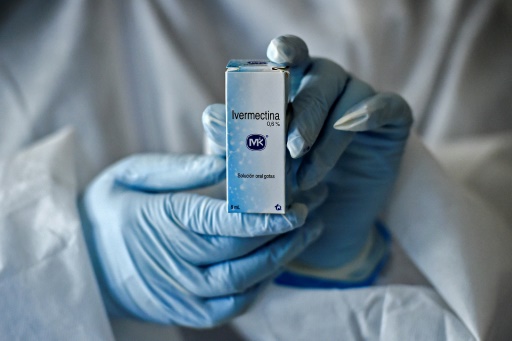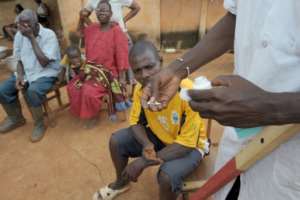
[ad_1]
Scientists have warned against taking an anti-parasitic drug as a treatment for Covid-19 despite headlines touting it as a cure.
Facebook posts and articles endorsing ivermectin have proliferated in Brazil, France, South Africa and South Korea as governments around the world scramble to roll out vaccination programs.
But health agencies say there’s not enough evidence to promote the drug as a cure for coronavirus – and research into the matter has often been flawed.
Ivermectin has long been used to treat parasites such as head lice and has been widely distributed in sub-Saharan Africa since the 1990s to treat river blindness.
The pandemic has caused an increase in demand for the drug, especially in Latin America, which has suffered the second highest number of deaths from Covid-19 in the world.
Researchers say flawed studies supporting the drug fueled black market sales, hampered further scientific research and influenced government responses to the pandemic.
“Policy decisions regarding ivermectin in Latin America have been largely based on analysis presented in a preprint in early April,” said experts from the Barcelona Institute for Global Health.
A pre-print usually means a study that has been put on the Internet but has not been peer reviewed – the process by which the results are reviewed by other scientists before being published. in a scientific journal.
The document was later withdrawn after experts raised methodological issues.
‘No proof’ it works
Politicians, however, continued to endorse the drug.
In May, the Bolivian government announced that it had authorized ivermectin to treat patients with coronavirus, although it admitted that there was “to date no scientific evidence of a drug treatment against COVID-19 “.
Brazilian President Jair Bolsonaro, in a tweet this month, claimed that ivermectin could be responsible for the relatively low number of coronavirus deaths in Africa.
So many people have taken ivermectin that Peruvian scientists told the science journal Nature in October that they were struggling to recruit volunteers for trials to assess whether the drug could fight the coronavirus. People who have taken the drug in the past are not eligible to participate in the program.
Ivermectin is one of a series of drugs tested as a potential treatment for Covid-19 since the start of the pandemic.
Like hydroxychloroquine, an antimalarial drug – so far unproven in clinical trials – ivermectin is widely available and relatively inexpensive.
Unitaid, an agency that buys drugs for the poorest people in developing countries, said more studies were needed to confirm the effectiveness of ivermectin.
“Preliminary data is promising but it is necessary to await the results of new trials before determining the next steps,” Unitaid spokesman Hervé Verhoosel said in a statement last week.
The United States Food and Drug Administration (FDA) warned last month that the drug had not been approved to prevent or treat Covid-19.
“While there are approved uses for ivermectin in humans and animals, it is not approved for the prevention or treatment of COVID-19,” he said on his website.
No better than a placebo?
The quality of existing clinical trials has also been scrutinized.
A widely cited study published in April in the medical journal Antiviral Research found that ivermectin was effective against SARS-CoV-2, the virus responsible for Covid-19, in cells tested in a lab box.
These so-called in vitro tests are the first crucial step in medical tests.
 Ivermectin has a long history in rural Africa as a medicine to treat river blindness, a disease caused by a parasitic worm spread by the black fly. By ISSOUF SANOGO (AFP)
Ivermectin has a long history in rural Africa as a medicine to treat river blindness, a disease caused by a parasitic worm spread by the black fly. By ISSOUF SANOGO (AFP) But drugs that show promising results in the lab are often ineffective in humans, often because the dose needed to neutralize a pathogen cannot be safely administered to patients.
“Concentrations used in vitro may not be achievable at therapeutic doses,” Ruben Hernandez, pharmaceutical chemist at San Borja Arriaran Hospital in Santiago, Chile, told AFP.
South African pharmaceutical agency SAHPRA said it was not yet possible to recommend ivermectin as a Covid-19 drug.
“Based on the evidence from available randomized controlled trials, ivermectin is not superior to placebo in terms of viral load reduction or clinical progression. There is no evidence from randomized controlled trials for a reduction in mortality, ”he said in a statement earlier this month.
Kim Woo-joo, a professor in the Division of Infectious Diseases at Korea University Hospital in Seoul, said more testing is needed.
“If we want to be 100% sure that the drug works, we need the results of larger randomized controlled trials,” he told AFP in an interview on January 7, 2021. .
He said it was unclear whether the improvement in a particular patient’s condition was due to ivermectin or not.
“Some patients infected with Covid-19 tend to get better even without receiving proper treatment,” he said.
Source link